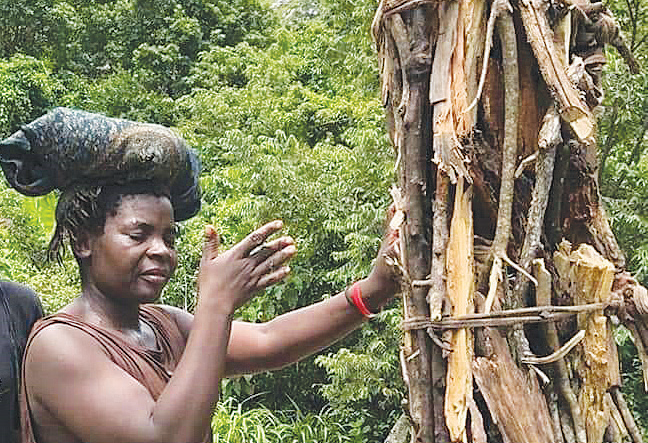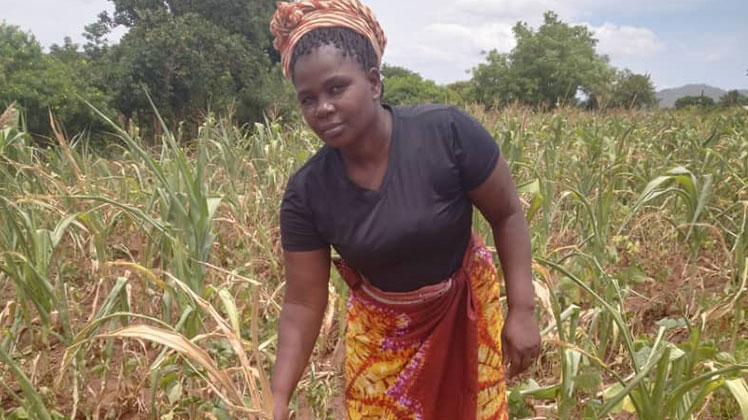Making Zomba green again
Zomba at the foot of Malawi’s second-largest mountain is alternatively known as the green city, but the greenness is waning fast.
Winding up Zomba Plateau, a group of sweaty women and children are seen struggling to balance a bulky bundle of firewood on their heads.
Idah Mdoka, from the hilly Mtiya Ward in Zomba City, endures this hardship every week to meet the cooking and heating needs of her family of six.

“As trees become scarce, I walk long distances to fetch firewood,” she says, gasping for air.
Without access to affordable clean energy for cooking, Mdoka, like over 90 percent of households in Malawi, cooks using firewood and charcoal. According to the 2018 census, almost 80 percent of the country’s population use firewood while 10 percent depends on charcoal. The overwhelming demand for fuelwood and scanty reforestation drives have worsened the loss of trees, contributing to heavy environmental degradation that worsens hunger and poverty.
The Food and Agriculture Organisation of the United Nations (UN) reports that degraded environment has made Malawians vulnerable to effects of climate change such as floods, prolonged dry spells and drought.
Since 2015, the annihilation of natural trees on the slopes of Zomba Plateau has left the city prone to flooding, landslides and wind storms.
Mdoka says her household experiences perennial hunger as the degradation hinders their crop production efforts.
She says: “Rains result in raging run-offs that wash away my crop field. The replanted crops do not thrive because of prolonged dry spells and lack of fertiliser. I harvest too little to last for even three months.”
The mother of four is also is one of thousands of Malawians affected by Tropical Cyclone Ana this month. Her house collapsed and she lost some belongings to floods that ripped livelihoods in the Southern Region.
Like others on the foot of Chingamudzi Peak on Zomba Mountain, Mdoka has a chance to build back better and enhance her household’s resilience to effects of climate change.
Oxfam is engaging communities in the colonial capital city to embrace integrated resilience activities for their security and plentiful produce.
Apart from planting trees, they are erecting watershed management structures to shield themselves from water-related disasters.
Ali Kachoka, Mtiya Ward Natural Resources Management Committee chairperson, is upbeat with the activities designed to reduce the frequency and severity of damages caused by weather shocks, including flooding and cyclones.
“We have suffered enough,” he states. “Now we understand how degradation has worsened the climate shocks that damage our property and claim lives. We have stood up to safeguard the environment.”
The intervention being implemented in partnership with Zomba City Council seeks to restore about 225 hectares of degraded land with 290 000 tree seedlings in the city’s seven wards. About 14 tree nurseries have been established, two in every ward.
For quick restoration of forest cover, communities have also embraced natural regeneration. One after another, the wards are resolving to keep hands off the stumpy forests so that they can sprout again
Village head Mtiya and his community have enacted forestry by-laws for sustainable environmental conservation and development of eco-conscious mindset among his subjects.
“We know a conserved ecosystem will help us achieve food security and be safe from disasters,” he says.
To enhance sustainable use of biomass by lessening the pressure on forests, the project bankrolled by the Adaptation Fund has popularised energy-efficient cookstoves that consume almost half the firewood that go up in smoke in open fireplaces marked with three stones. Others use briquettes instead of charcoal.
With these technologies, Mdoka says societal and health challenges faced by women and children are waning.
“The long distances we use to endure to get firewood as well as the hazardous fumes we used to inhale when cooking will be gone as the stoves use less wood and emit less smoke. This promotes our health and hygiene,” she says.
On Friday, Oxfam supported the planting of trees on Chingamudzi Hill to restore the deforested landscapes.
In an interview, Zomba City mayor Davie Maunde said: “This initiative will help us plant trees and regenerate about 50 000 trees this season.
“We will do everything possible to improve the survival rate of the planted trees.”
Oxfam project manager Andrew Mkandawire says the international non-governmental organisation is committed to helping residents of the city to build resilience.
“The interventions will tackle soil erosion and other forms of land degradation as well as disasters such as flash floods and landslides, among others, to improve lives of people,” he says.





